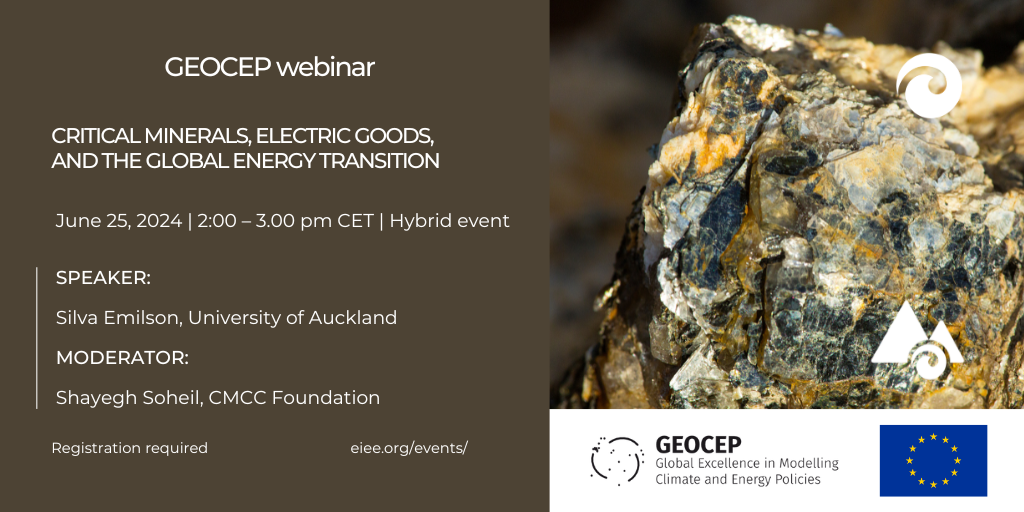GEOCEP webinar
, 14:00 CEST
To join the webinar, register here

Speaker
Silva Emilson – University of Auckland
Moderator
Shayegh Soheil – CMCC
Abstract
Countries are actively pursuing the energy transition, yet this process carries geopolitical consequences. Our paper delves into this dynamic by analyzing the implications of Chinese exports of critical electrical goods on national energy transitions, lithium and rare earth production and prices, and oil prices. Using a GVAR from 2012M7 to 2019M12 across 12 economies, with a focus on Australia (due to its near-monopolistic position in lithium), China (nearly monopolistic in rare earth), and the U.S., our study reveals that Chinese exports of critical electrical goods create a dependency for Australia and the U.S., making them reliant on the Chinese energy matrix. Furthermore, our findings show that China, both directly and indirectly, influences domestic energy transitions, and lithium and rare earth production. The indirect channels involve China’s impact on lithium and rare earth prices, with a notably higher influence in the rare earth market, reflecting its dominant position in this mineral. While the oil price is generally not pivotal for the energy transition of economies, the U.S. stands as a unique case where oil prices are essential to understanding its energy matrix and critical minerals production. Finally, we observe that Australia and the U.S. respond to escalating Chinese exports by increasing their production of critical minerals. We discuss the implications of our results, which suggest the potential for geopolitical tensions and the possibility of international cooperation to advance energy transition.
This event is part of a project that has received funding from the European Union’s Horizon 2020 research and innovation program under the Marie Skłodowska-Curie grant agreement No 870245.

